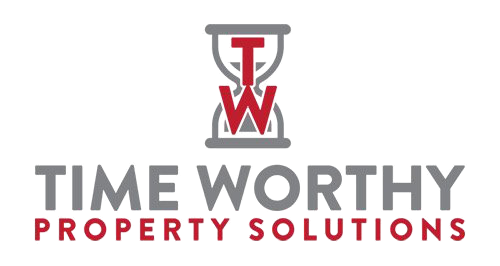Congratulations! You’ve sold your Kentucky home and are moving into the final stages of the transaction. If you’re a first-time home seller, you may be wondering about closing costs and other fees that the buyer or seller pays at this time.
You may be asking yourself several questions: What is a closing cost? Are there different types of closing costs? How much can I expect to pay as a seller in Kentucky?

It can be daunting to consider these fees as part of the closing process, especially for first-time sellers, but we’ve got you covered. If you’d rather forgo the loans altogether, you can sell your house for cash, but this is not always a possible route.
Instead, suppose you want to learn about average closing costs for a seller in Kentucky, average closing costs for a buyer in Kentucky, different types of closing costs, or even how to calculate closing costs. In that case, this is the guide for you.
What Are Closing Costs?
Selling your home is a time-consuming task, to begin with, but it can become even more overwhelming once the transaction is coming to a close. Closing costs are the expenses that need to be paid at the end of a new home purchase, such as insurance costs and fees for application, appraisal, home inspections, and more. All of the costs that come with services, loans, or any other costs involved at the end of the home purchase fall under the category of closing costs.
Sometimes these costs are paid right when the service is done, like costs for home inspections or appraisals, and some are paid later. Depending on the deal you strike up with your buyer, they may be responsible for some of these closing costs. If you are looking to sell your Louisville home for cash instead of undergoing these steps, it’s worth looking into how cash purchases work.
There are many different types of potential closing costs when selling a house, but the fees you’ll incur can vary significantly based on several various factors, like where you live or what type of home you sell.
In general, you can expect closing costs to be about 2-6% of the home’s purchase price. So what are these different types of closing costs, and which can a Kentucky home seller expect?
Different Types of Closing Costs
There are tens of different types of closing costs that you might see on your home. These costs most often include loan-related fees, mortgage insurance policy, and legal fees but can sometimes include additional costs such as pest inspections, flood determination, and more. These can depend on your home and where you live.
However, there are a few types of closing costs that are standard and you can typically expect.
Mortgage Application Fees
When searching for a mortgage loan, the applicant will have to apply to the lender. This is a non-refundable fee that you pay at the time of application. The price varies by lender but can be as much as $500. Since you won’t be getting this money back, it is crucial to determine whether your credit score is good enough before applying. Some lenders do not require a mortgage application fee at all.
Appraisal Fee
The appraisal fee is a property-related fee that you have to pay to a certified and professional home appraiser. The appraisal is done for your loan lender so they can determine whether or not the home is worth the amount of money the borrower needs. The appraiser will examine the home, estimate its worth, and relay your lender’s information for negotiations.
The cost of the appraisal fee can vary between appraisers, but typically you can expect that for a professional certified appraiser, you will pay somewhere between $300 to $400.
Building Inspection Fees
Another type of evaluation lenders usually require before approving your home loan is a building or home inspection. This is different from an appraisal because although an appraisal’s objective is to determine your home’s value, a building inspection is an inspection of your home’s condition.
This means the inspector will evaluate your home for how structurally sound it is, what repairs you need to make, or what may become a problem later.
Home inspections usually range from $300 to $400. Still, they are important investments for home buyers since they can alert buyers to potential repairs, damages, or things they should be concerned about with the home.
Legal Fees
Legal fees related to the transfer of the property’s title from the seller to the buyer. Title search fees and title insurance fees are costs incurred to ensure that the homeowner can transfer the property to the buyer with no liens or existing claims against the property.
Other types of legal fees include the cost of registering the buyer’s ownership of the property at the courthouse or any fees charged from the closing attorney that might have helped with closing on the property.
Other Types of Closing Costs
Those are the basic types of closing costs that you’re sure to find for pretty much every home transaction, but other types of closing costs can depend on your state, the type of property you buy, and even the loan you choose. Depending on what your state regulates or what your lender requires, you may run into additional closing costs.
Some of these other types of closing costs are necessary for your mortgage insurance or property taxes. Sometimes, you must pay upfront fees or deposits. It is not uncommon for insurance companies to require that you put down a deposit of two months of property tax and mortgage insurance payments right off the bat. You may even have to prepay any interest rate on your mortgage payment that will accrue within the first month.
You may also need other inspections done to your property that will result in more closing costs. In Kentucky, it is required that experts perform a termite inspection on the property prior to closing. Additionally, per Kentucky law, if the home was built before 1978, a lead paint inspection or no lead paint certification (provided by the seller) is necessary.
Other states may require other types of inspections prior to closing, such as flood determination inspections.
How to Pay Closing Costs
Now that you know about the different types of closing costs you might expect as a Kentucky seller, it’s time to pay them! Luckily, there are many different options for sellers and buyers on how to pay closing costs.
First, both sellers and buyers can choose to pay closing costs upfront at the closing appointment using a cashier’s check. This is beneficial for buyers because it will keep loan rates stable and will keep payments low.
Another option for buyers is to roll the closing costs into the loan, which is helpful if you don’t have the money outright. However, this will result in a higher mortgage amount and monthly payments down the line.
If you are a seller, you will want to pay all of the closing costs upfront with a cashier’s check, so when negotiating who will pay for which costs, keep in mind that you must pay these fees outright.
How to Calculate Closing Costs
On average, closing costs for a seller in Kentucky are about 1% to 3% of the property’s sales price, in addition to the 6% real estate agent commission. Buyers can usually expect to pay 2% to 5% but don’t have a real estate fee to pay.

To calculate a range of what you may be spending as a home seller in Kentucky, you can simply calculate 1% to 3% of your home sale price or do the same as a buyer. To get a more accurate idea of what you may be spending based on your loan type, term, down payment, and other factors, you can use a closing cost calculator.
Closing Cost Calculators
There are many handy resources available for you to have a more accurate idea of what you might be spending on your closing costs. Bank of America has a great closing cost calculator, and SmartAsset has one as well. Both of these calculators are even specific to location, ensuring the most accurate estimate.
Using a calculator is the most reliable way to get the most accurate estimate possible to reduce the stress and know what to expect when closing on your Kentucky home.
Conclusion
Purchasing or selling a house is a time-consuming process that can seem daunting if you’ve never done so before. From mortgage insurance to legal fees, it can be an overwhelming undertaking.
Fortunately, there are many resources that can reduce the stress of closing costs by helping you understand what you may have to pay as a buyer or seller in Kentucky, how much you can expect to pay, and even how and when to pay your fees.
With the help from our guide, you’ll be a home selling professional in no time!
